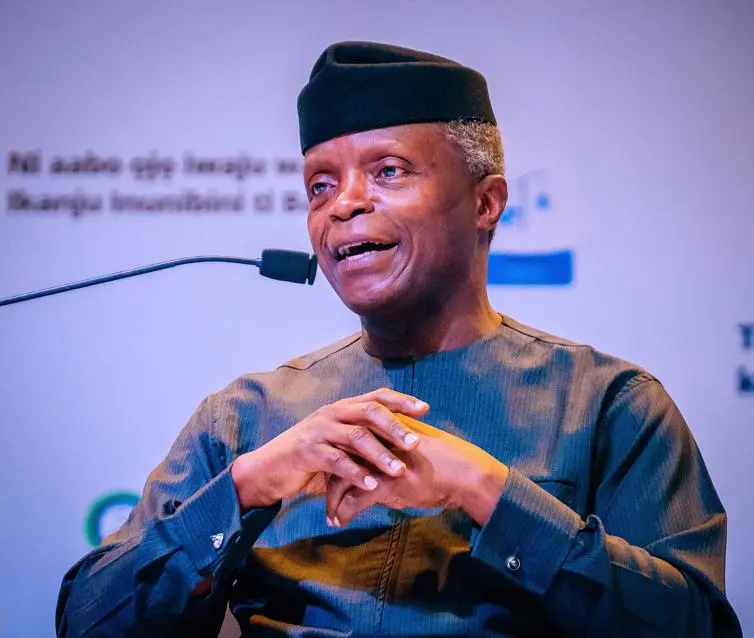In order to help Africa and the rest of the world transition to a more sustainable energy source, Vice President Prof. Yemi Osinbajo has stressed the critical and strategic role that Nigeria must play. He has also emphasized that for Africa to quickly industrialize and lift millions of its citizens out of poverty, this needs to happen.
This was said by Prof. Osinbajo during his remarks yesterday at the official opening of the Nigeria International Energy Summit (NIES) exhibition at the International Conference Centre in Abuja.
The Vice President stressed the importance of the summit’s topic, “Global Perspectives for a Sustainable Future,” for the socioeconomic future of Nigeria, Africa, and the entire world in his speech.
Drawing lessons from the work done in the last couple of years by the federal government’s Energy Transition working group, which he chairs, Prof. Osinbajo said, “In that capacity and working with a strong inter-ministerial team and several energy sector players, it has become increasingly clear to me that Nigeria has a crucial and strategic role in delivering the sustainable energy future that Africa and indeed the world must have in the next few years.
Read Also: ngo-urges-un-others-to-help-in-tackling-marine-pollution-in-nigeria
“Second is that it is the key sector actors such as are gathered in this room who must do a lot of the heavy lifting to get us there. The truth is, no other sector of our economy is as crucial in the transition to a more sustainable future.”
The vice president, who restated his view on Africa becoming the first truly green civilization in the world, noted that “the future is not in Africa as a victim, it is in our nation and our continent driving the next stage of global economic progress by becoming the first truly green civilization in the world.
Highlighting the pathway forward for Africa in the transition to a sustainable energy future, the VP noted that Africa can only become the first truly green civilization “by recognizing the opportunity early and intentionally developing all the potential around our natural resources including natural gas, solar and biofuels.”
Furthermore, Prof. Osinbajo stated that Nigeria’s Energy Transition Plan was “a bold and innovative move that calls for the ramping up of solar deployment to about 5.3 gigawatts per year until 2060.”
The VP added that this also includes “the production of over 6 billion litres of biofuels annually to make green the transport sector on the path to e-mobility and the transition of at least 2 million Nigerian households to cleaner cooking fuels like Liquefied Petroleum Gas (LPG) and electricity every year.”
While acknowledging that there was still a long way to go, the Vice President emphasized that Nigeria can achieve its sustainable energy goals.
Story adapted from Leadership
